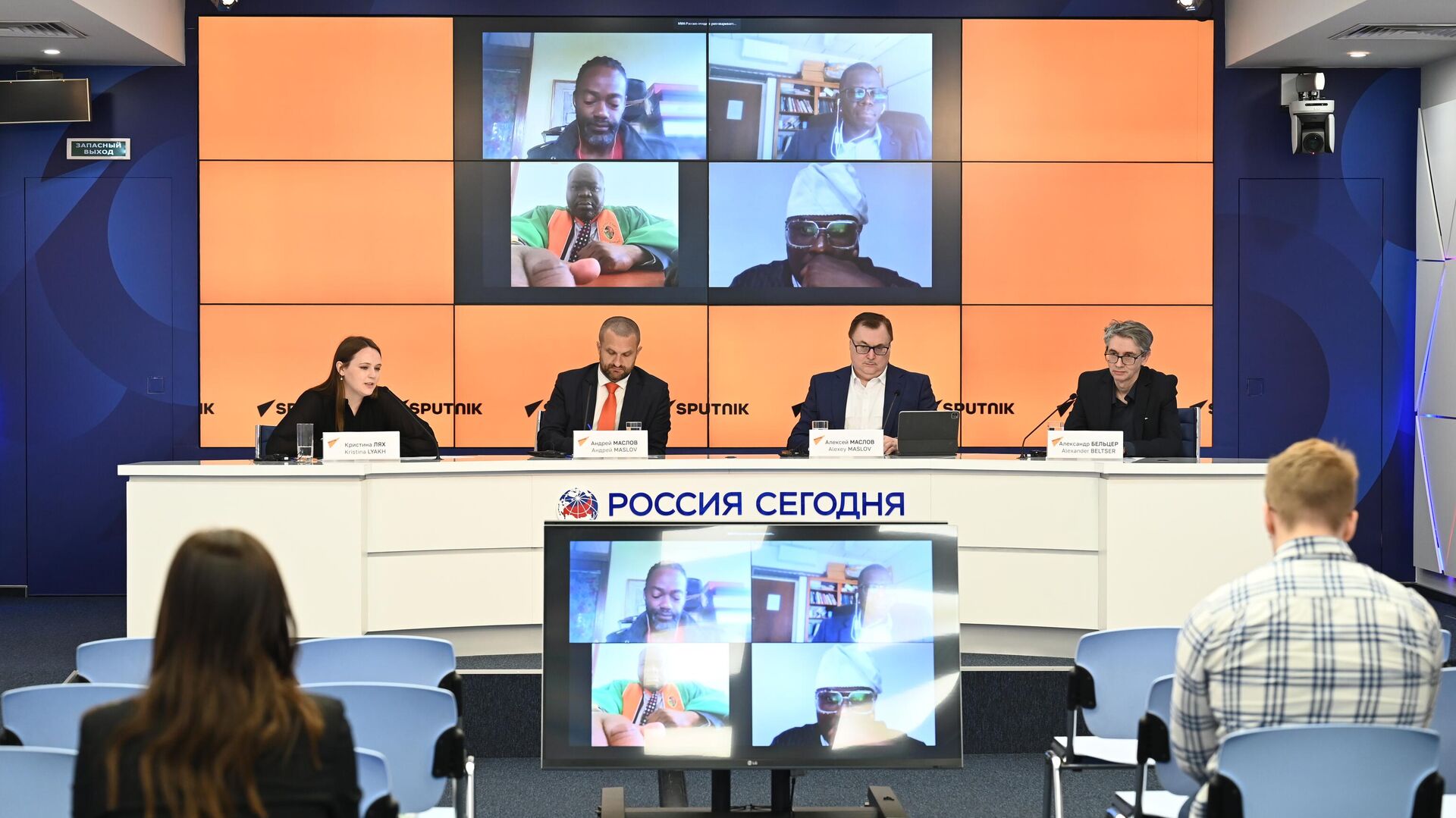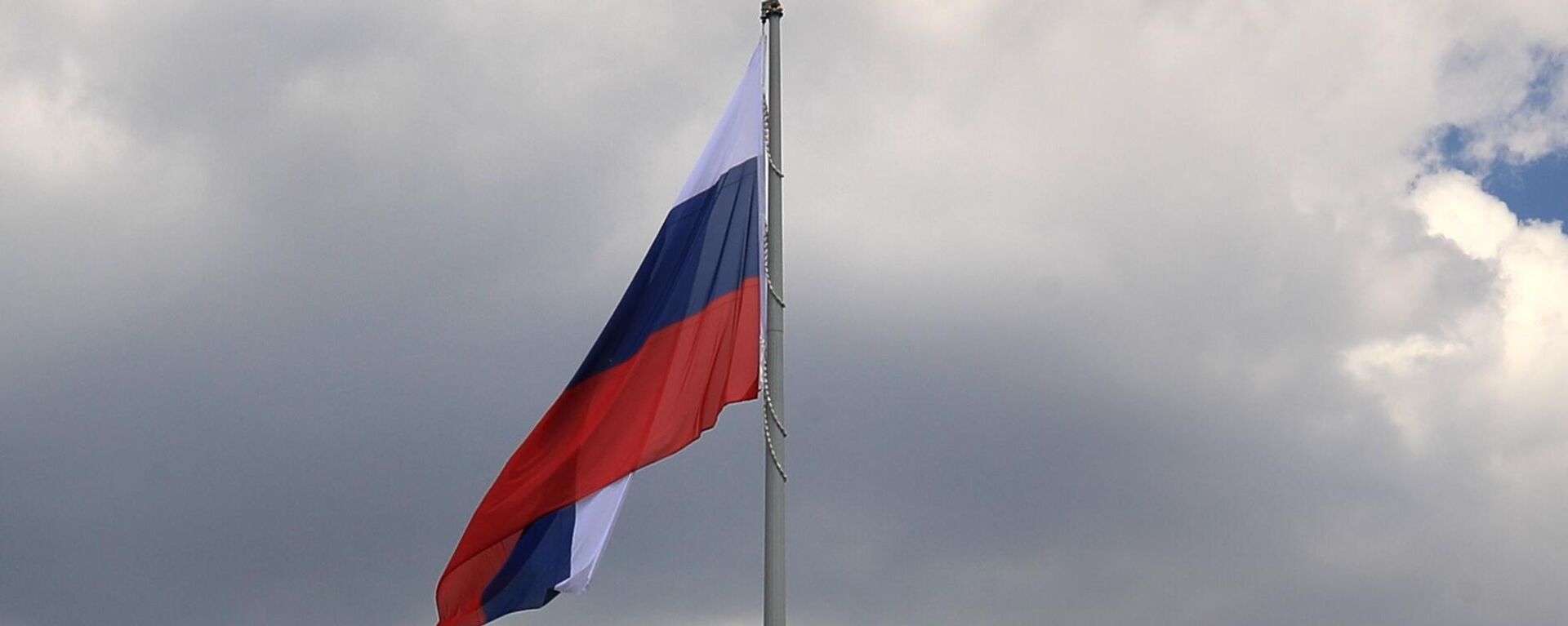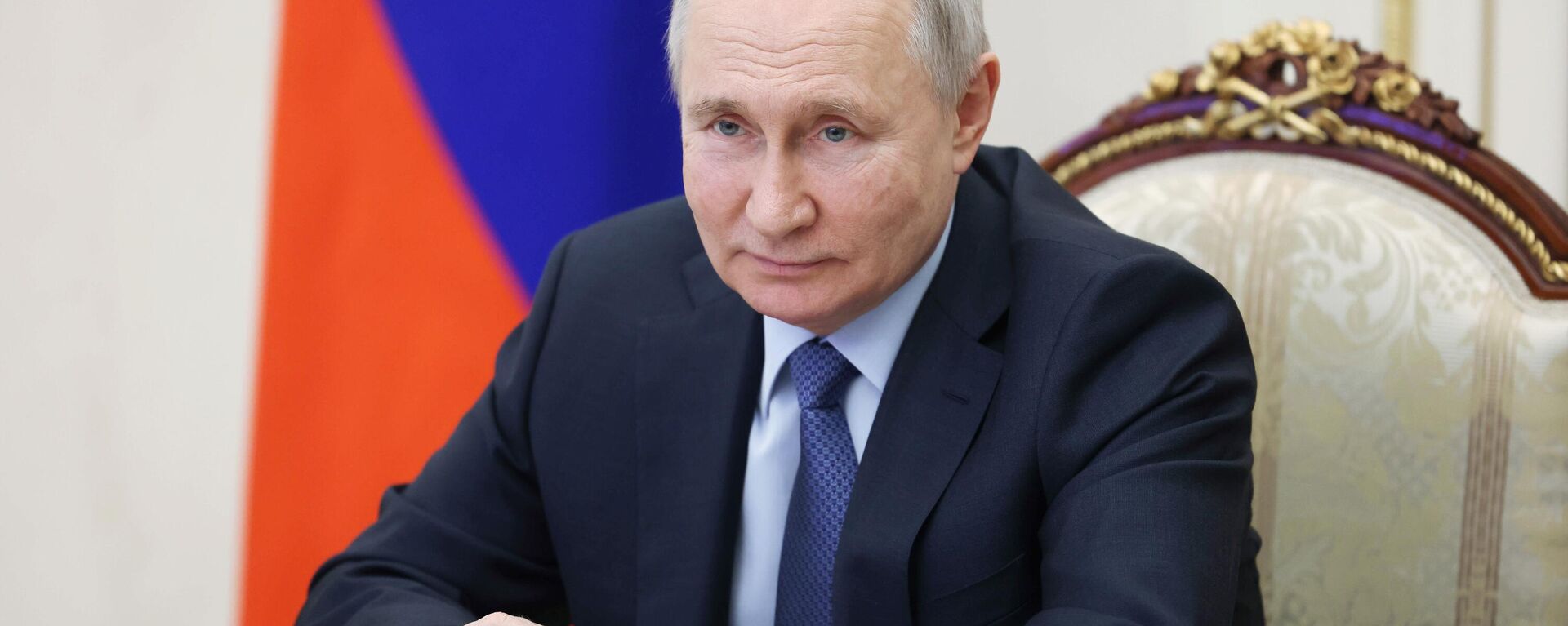Teaching African Languages in Moscow Schools, Other Projects Discussed at Sputnik Roundtable
16:18 24.05.2023 (Updated: 16:22 24.05.2023)

© Sputnik . Nina Zotina
Subscribe
MOSCOW (Sputnik) - The Sputnik international news agency and radio held a roundtable, Russia – Africa: Prospects for Economic Cooperation.
The discussion was attended by Alexei Maslov, Director of the Institute of Asian and African Studies, Lomonosov Moscow State University (IAAS MSU); Andrei Maslov, Director of the Center for African Studies, Higher School of Economics National Research University (HSE); Alexander Beltser, Associate Professor of the History Department, Korolev Samara University; Philani Mthembu, Executive Director at the Institute for Global Dialogue (South Africa); Lubinda Haabazoka, Director of the Graduate School of Business of the University of Zambia and Former President of the Economic Association of Zambia (Zambia); Tunde Ajileye, Head of Research at SBM Intelligence (Nigeria); and Sevias Guvuriro, Associate Professor of the Department of Economics and Finance, University of Free State (South Africa).
Speaking about fostering expert and analytical personnel’s competencies in Russian-African cooperation, Director of the Institute of Asian and African Studies Alexei Maslov noted: “An abrupt turn to Africa requires a completely different type of specialists who could work directly with the economy and with modern political and economic elites, and most importantly, would realize that Africa is not just one big continent, but in fact, a patchwork of diverse national, ethnic, religious and linguistic traditions.”
In addition, at least four Moscow schools will teach Swahili and Amharic starting September 2023 as part of the special IAAS MSU program.
Executive Director at the Institute for Global Dialogue Philani Mthembu stressed the role of bilateral projects in agriculture and food: “I think it will be important for Russia and Africa to consider not only the possibilities for trade in minerals and resources located on the African continent, but also potential mechanisms for attracting Russian investment, as well as the creation of joint ventures.”
Director of the Graduate School of Business of the University of Zambia Lubinda Haabazoka spoke about the role of the dollar in the modern world: “The Bretton Woods economic system, which was created in 1944, is holding back Africa’s growth. We are very dependent on the dollar, but at the same time, we do not trade with America. That is, thinking logically, we are not receiving the dollars to continue trading with other countries. Even neighboring Zambia and South Africa use dollars in mutual trade. This is kind of absurd. Therefore, we need to have BRICS create an alternative international monetary system as soon as possible.”
“The problem of hunger in countries such as Ethiopia can be largely resolved through smart management of the food security system in that country,” Andrei Maslov noted while presenting HSE's current research on the digital transformation of public administration in Africa. The expert added that HSE University is developing a training program in digital public administration for African officials.
Tunde Ajileye from SBM Intelligence underscored that, historically, Russia was one of the countries where the African elite went to earn degrees. And now Russia and Africa need to resume educational exchanges, he added. According to the expert, it is also important to intensify cooperation in agriculture, energy and investment.
Associate Professor Alexander Beltser from Samara University called on African countries to invest more in the Russian economy: “We talked a lot about the prospects for investing in Africa, but a reverse call is also valid. We have several success stories.”
Sevias Guvuriro from the University of Free State discussed the ongoing change in the existing world order and emphasized the special role of BRICS in relations between Russia and South Africa.
The discussion was part of a series of educational and expert events, “New Horizons of Cooperation between Russia and the Countries of the Middle East and Africa,” organized with the support of the Alexander Gorchakov Public Diplomacy Fund and the Center for Assistance to Humanitarian and Educational Programs.


